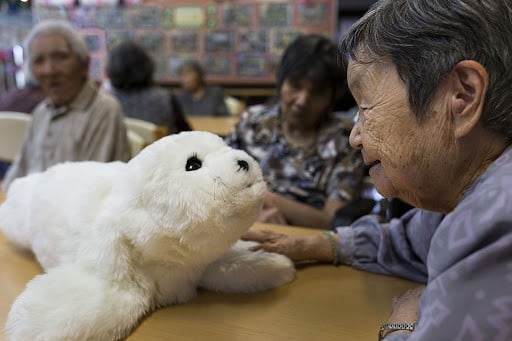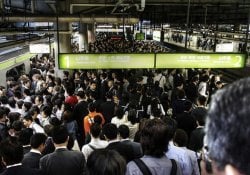How does elderly care work in Japan? Perhaps we imagine that because the elderly have a good outlook on life, they must be well taken care of. It is estimated that by 2055 at least 40.5% of the Japanese population will be elderly, over 65 years of age.
The concern in these data is in the sense that the older they are, the more care they will need because limitations come with age. The Japanese government has projects in this regard so that they can age peacefully. Unfortunately, not all elderly people have families to take care of them.
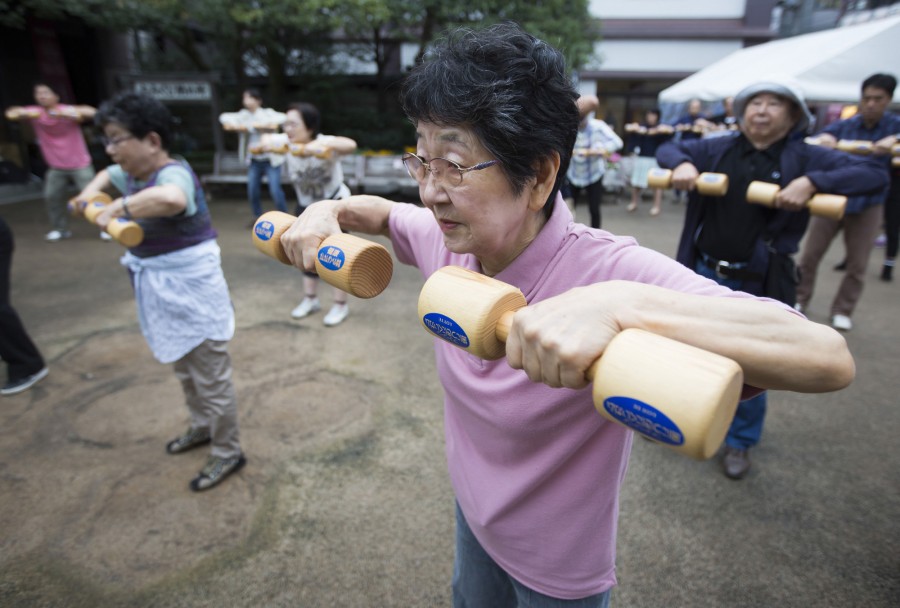
Índice de Conteúdo
Tradition
The average elderly in Japan is currently over 30%. Treating them with respect has been a tradition for years and begins in childhood. for sure at watch anime, you may have noticed how the elderly are treated, they are respected, many are clan/family leaders and regarded as teachers and sources of wisdom.
In Japan there is even a holiday for the elderly! Respect for the Elderly Day is celebrated on the third Monday of September. In commemoration of this day, it is common for the Japanese to take to the streets for outdoor activities.
Japan is one of the countries where seniors are best enjoyed, after Sweden and Norway. As the population is aging, the country is concerned that the care of the elderly is in every way, they have an incentive to practice exercises. This makes the elderly more active and consequently does not need care in order not to overload the public system.
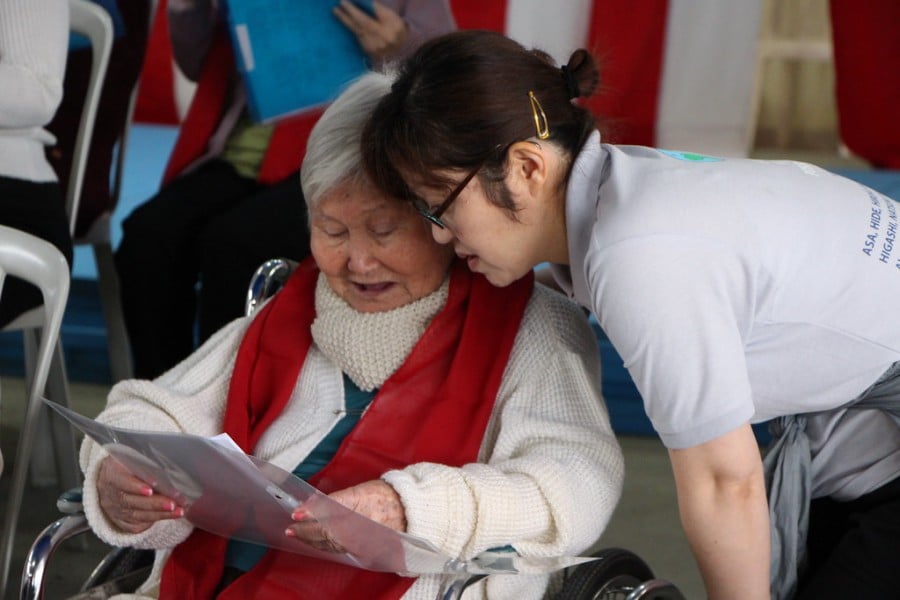
Social assistance for the elderly
According to the Japanese Embassy in Brazil, the number of families that can provide care for the elderly is decreasing with each passing year because of the familiar patterns which are generally now more composed of parents and children, grandparents, uncles, cousins are not always part of it. So the government has created ways for these elderly people to be welcomed through medical and social assistance, especially those who need special care.
All the benefits regarding the care of the elderly is based on older laws which are the main ones: Law on Social Assistance Services for the Elderly (Rojin Fujishi Ho), which came into effect in 1963. The provisions of the Act on Medical and Health Services for the Elderly (Rojin Hoken Ho). These assistances are administered by local government welfare offices called fukushi jimusho.
In order for the care of the elderly to be carried out correctly, a mapping is carried out by region to know the situation of each elderly person and the type of assistance they need. shakai fukushi shuji . The elderly are able to access daily care, nursing homes ( kaigo rojin hoken shisetsu ), special homes for the care of the elderly (tokubetsu yogo rojin humu), and collective homes for elderly people with dementia (chihosei koreisha gurupu humu).
In 1989 the “Golden Plan” was developed and revised in 1994. This plan is aimed at improving the stay of these elderly people, special care and services such as meals and physical exercises. In 2000 the “Golden Plan 21” was launched with 6 plans: (1) improve the foundations of long-term care services, (2) promote measures to support the senile elderly, (3) promote measures to revitalize the elderly, ( 4) develop a community support system, (5) develop long-term care services that protect and trust their users, and (6) establish social foundations to support the health and care of the elderly.
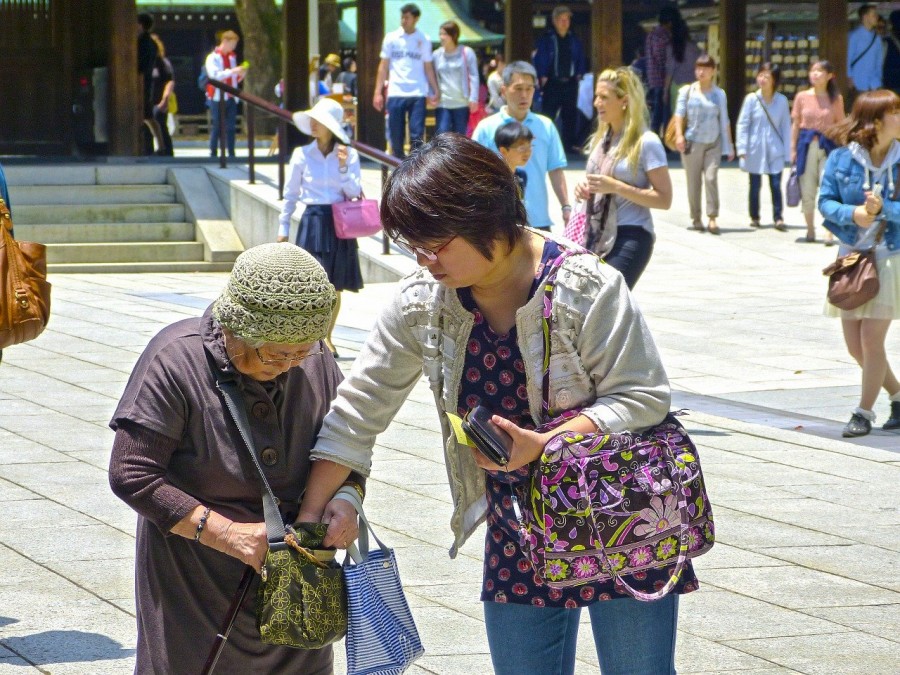
Technology for the elderly
Japan is known for having pretty crazy inventions, which are often very useful and they used this feature in favor of the elderly in order to make their lives easier. BBC News has separated 3 technological ways to help the people of Japan. Let's see what they are and how they can be of great help to the elderly.
1 – QR code on nails for those who have memory problems
Most cell phones already come with a QR Code reader (quick response code, in English) in order to access information more easily. In Japan they joined this function to the elderly who suffer from some memory problem.
In the city of Iruma located north of Tokyo, residents who have dementia are monitored through QR Codes that are installed on the fingers or toes. The idea was implemented in 2016.
The code includes information about the elderly person, such as name and place of residence and telephone number. The service is one of the forms of care for the elderly. But the QR is only stuck to the person for up to two weeks and is waterproof, needing to be replaced.
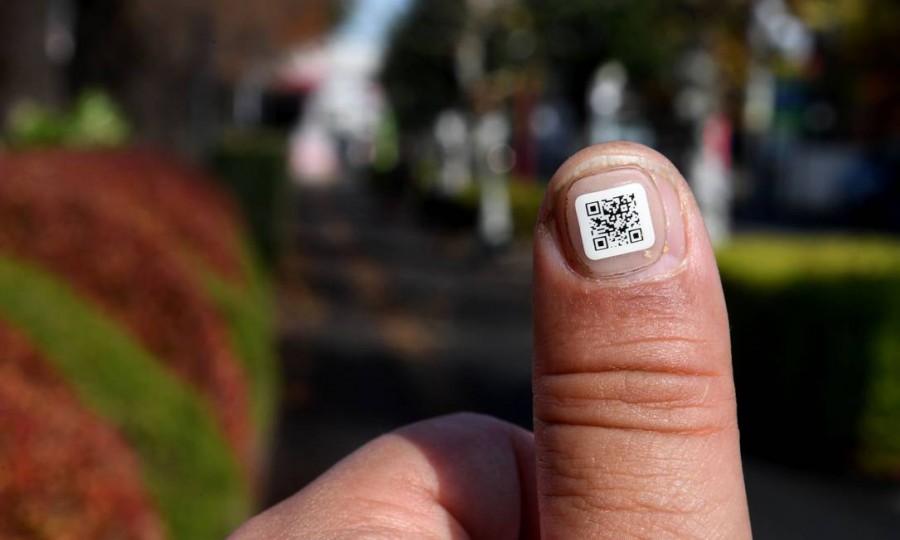
2 - Golf carts
There are also golf carts used to facilitate the displacement of the elderly. The service is automatic, free of charge and runs 4 hours a day. This is one way to help reduce traffic accidents with older drivers.
The car has a sensor that allows it to travel up to 3 kilometers at speeds of 6 to 12 kilometers per hour. It has a hidden electromagnetic clue. The carts have their own drivers and have curtains for protection. The service does not work at night.
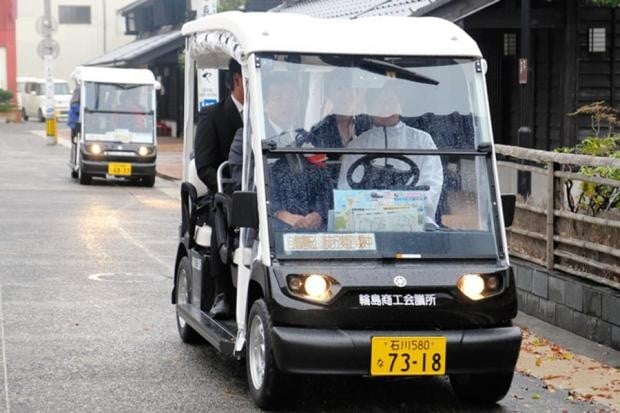
3 - Robots
Japan is one of the countries that invests the most in robots to help care for the elderly. In 2013 alone, more than 18 million dollars were invested in this type of care for the elderly. In 2006, the Riken Center for Scientific Research for Emerging Issues developed a robot-nurse named “Ri-Man” with silicone arms to transport elderly people.
Another robot with the appearance of a seal called “Paro” was created, it serves to keep the elderly person company. It is designed for people with Alzheimer's and other types of dementia.
